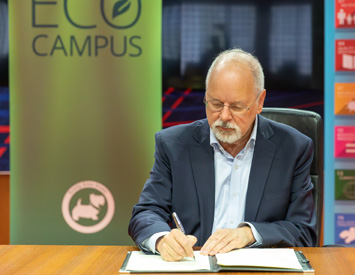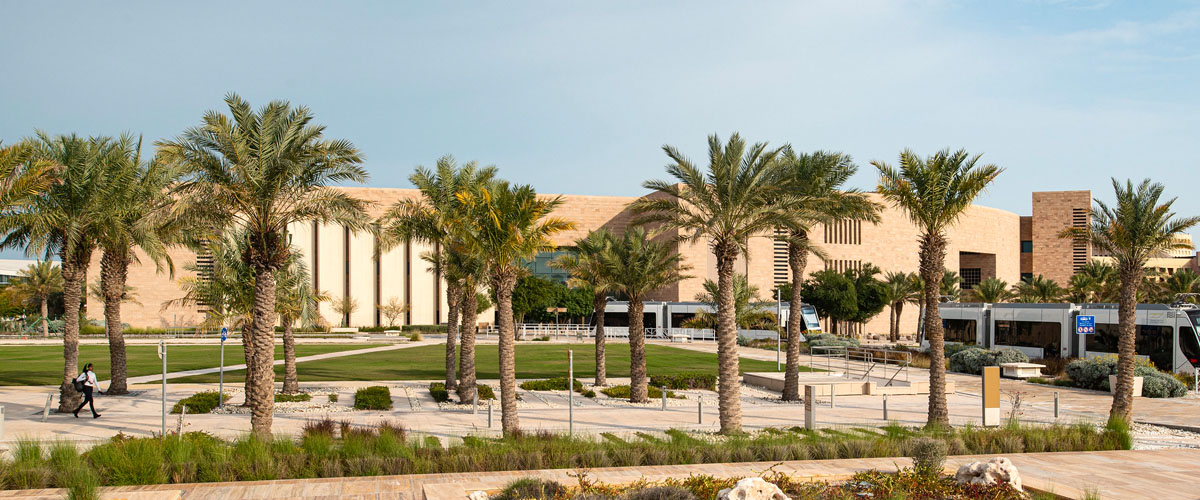Tartans For Sustainability
Sustainability is a core value of Carnegie Mellon University, and the Qatar campus embraces this value wholeheartedly. Our community is comprised of faculty, staff and students, and together we are on a mission to work the UN Sustainability Development Goals (SDGs) into every aspect of campus life.
The heart of learning and life on campus
Sustainability is multifaceted and touches on nearly aspect of campus life. Students can take specific courses in a variety of fields to learn more about the environment, ethics and equity, and many choose special projects to investigate specific angles and solutions.
Outside of the classroom, faculty, staff and students work continually to find new ways to reduce the carbon footprint, adopt more sustainable operational practices, and inspire others to make changes with the planet in mind.

Dean Trick signed a Sustainability Charter on Earth Day 2024, committing CMU-Q to environmental and social responsibility.
The EcoCampus Initiative
In 2020, CMU-Q set out on an ambitious plan to transform the campus into a more sustainable place to study and work. Throughout the pandemic, a dedicated group of faculty, staff and students lay the framework for the EcoCampus Initiative, a structured plan to improve sustainability for the entire community. In 2023, CMU-Q announced the EcoCampus Initiative to Qatar in order to encourage and inspire other institutions to become more sustainable themselves.
To earn the EcoCampus Green Flag designation, CMU-Q’s entire community will be involved in implementing UN SDGs at the campus.
“We have made tremendous strides in building sustainability into everything we do. It is important for Qatar. It is important for Carnegie Mellon University in Qatar,”
Michael Trick, Dean, CMU-Q
How will we do it?
As part of the Foundation for Environmental Education (FEE) EcoCampus global network, and working closely with the FEE Qatar national sponsor, Earthna, CMU-Q will tackle three areas to improve sustainability on campus.
Food equity: Exploring ways that our food can be responsibly sourced, with minimal waste, and available to every member of the community. Our next steps are composting and community gardens.
Climate Change: Reducing our carbon footprint, from solar panel energy to responsible power management.
Go Green: Minimizing our waste by maximizing our recycling, and choosing reusable, sustainably sourced items as much as possible.
“Genuine change can stem from a single individual, and I believe students need to remember the impact they can make when working together as a community.”
Faisal Al-Thani, EcoCampus student leader, Information Systems, Class of 2024

